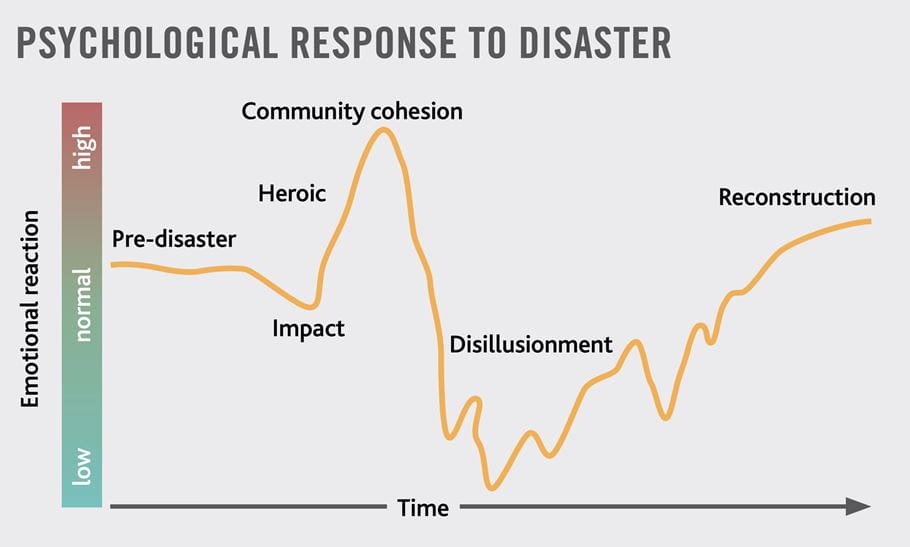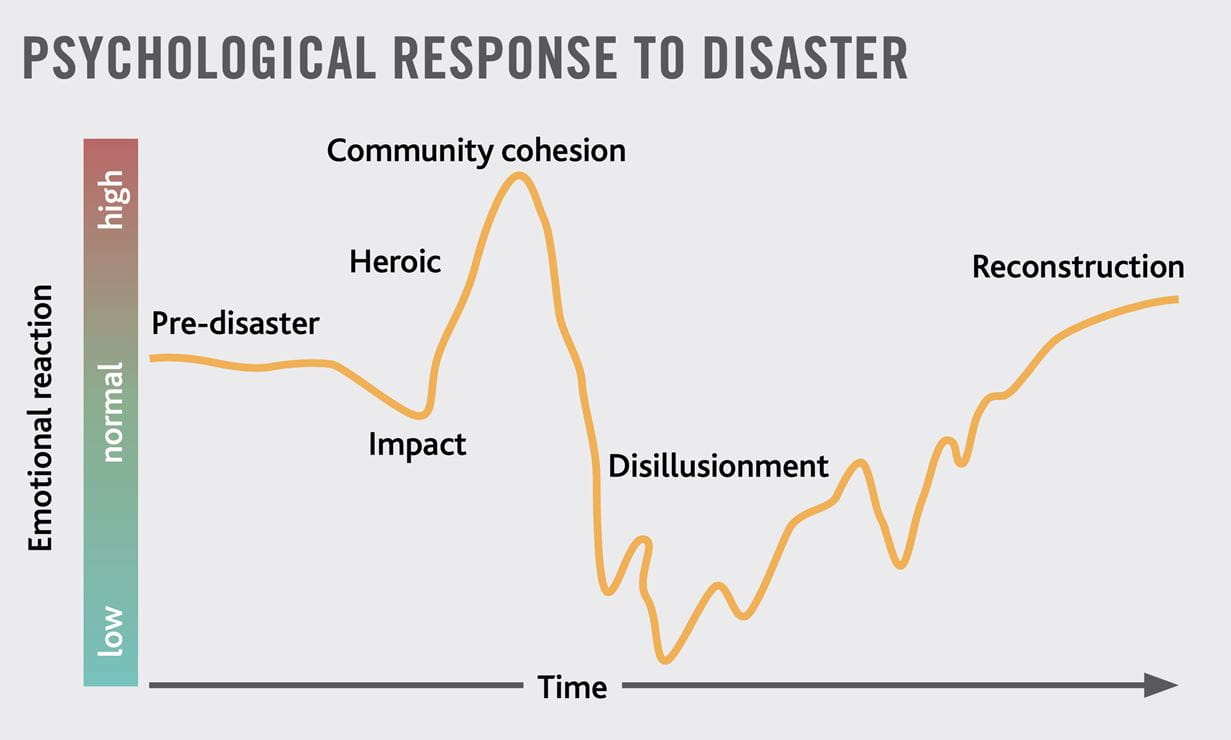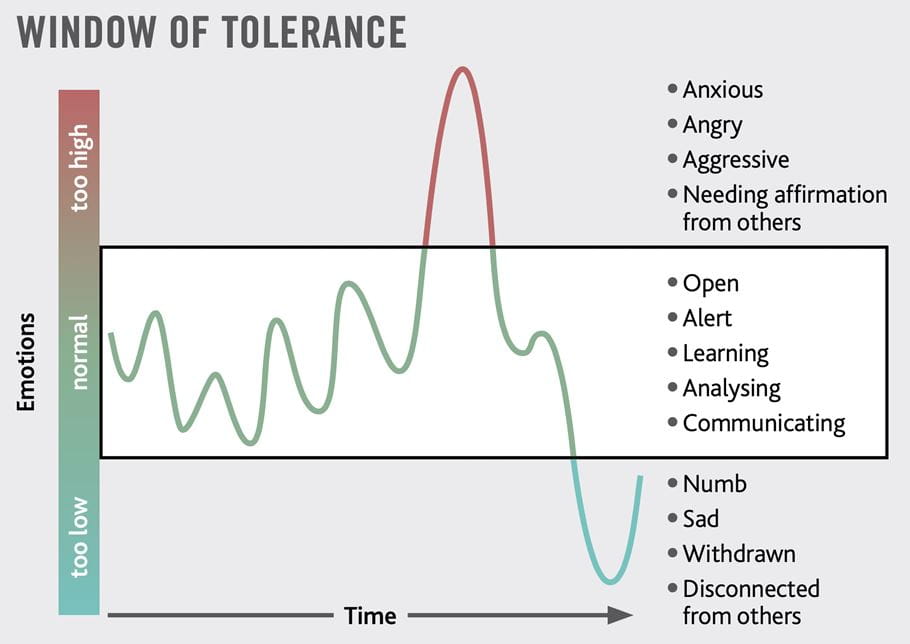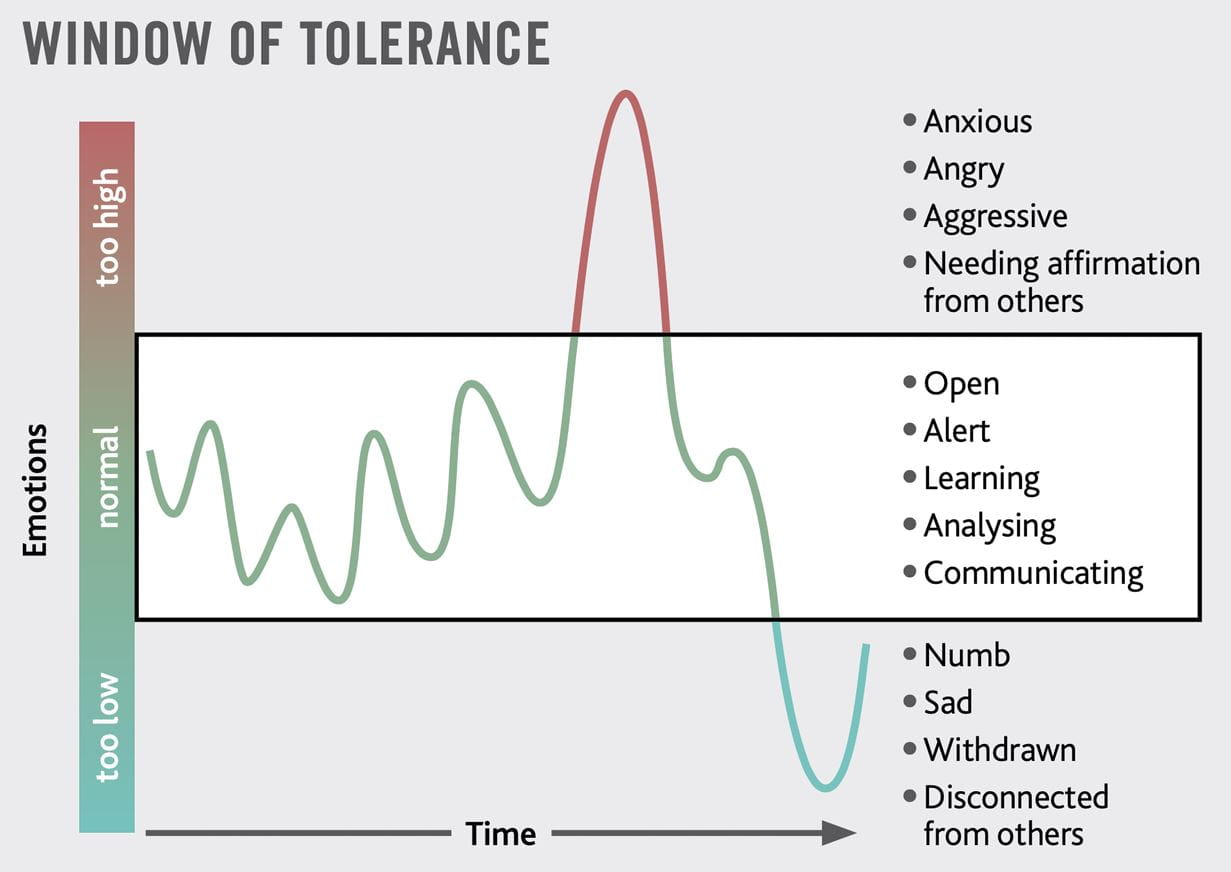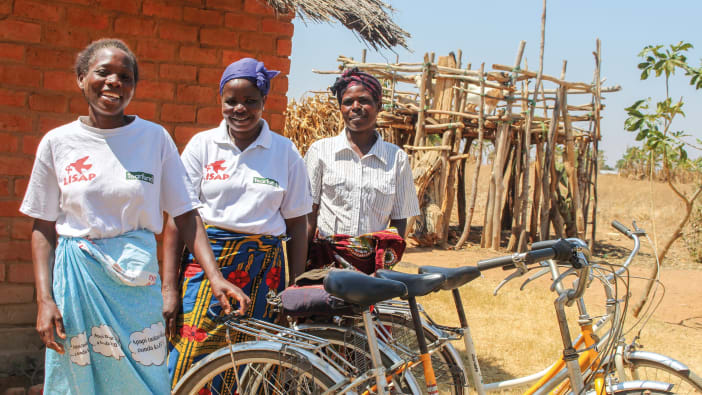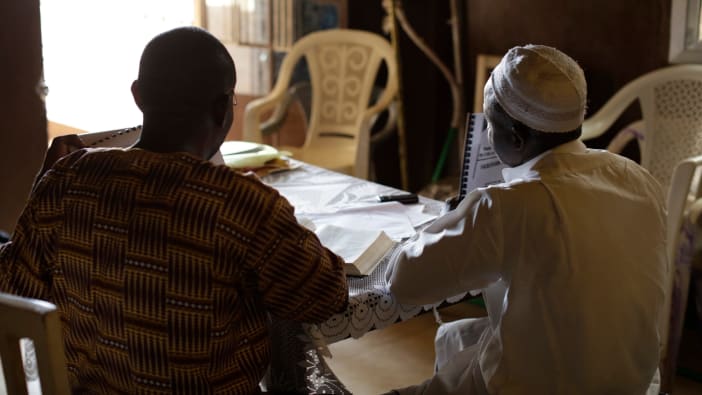However, when the stress we are experiencing becomes too much or goes on for too long, we can begin to find that our ups and downs become more extreme.
At one extreme, we may find ourselves becoming anxious or even aggressive. This is part of the ‘fight or flight’ response of our brains to a crisis. It is a natural response, designed to keep us safe if we encounter a threat such as a dangerous wild animal. At the other end of the scale, the stress we are experiencing may cause us to become disconnected, numb or depressed.
How we respond to stress will depend to a certain extent on our personalities. Some people are naturally more resilient than others. Previous experiences – good and bad – will also have an impact on how we respond. If we can begin to recognise when our emotions are either too high or too low, we can then use coping strategies to help us function normally again.
Coping strategies
These can be divided into spiritual, physical, emotional and mental.
Spiritual strategies
Having a sense of meaning, hope and trust in God can help us to cope with difficult circumstances. Spiritual disciplines such as prayer, forgiveness and Bible study enhance well-being. Belonging to a church provides both spiritual and social support. It is good to remember that throughout Jesus’ ministry the busier he got, and the more people crowded round him, the more time he made for quiet prayer on his own.
Physical strategies
Maintaining physical health through regular exercise and healthy eating is very important. Drinking too much alcohol or taking drugs can help relieve stress in the short term, but in the longer term they will make the situation worse. The best way to develop healthy habits is to set small, easily achievable goals. For example, taking a short walk each day. Every success results in feelings of achievement, increasing our resolve to make bigger changes next time.
Mental strategies
When normal routines are no longer possible, it is important to create new ones. These may include exercise, prayer and specific times for resting, eating and sleeping. These routines can be flexible, but it is good to maintain a sense of daily and weekly rhythm, without trying to do too much.
During a time of national or international crisis it is good to be informed, but too much news can be overwhelming. False or misleading information may also be circulating, particularly on social media. Depending on the circumstances, it may be better to access a trusted source of news, just once or twice a day.
Emotional strategies
When we experience a high level of stress we may feel that we are unable to control our emotions and reactions. When this happens it is very important to stop and notice what is going on in our minds and bodies. We can then begin to understand ourselves better, helping us to make wise choices about how best to respond.
Questions to ask are:
- What am I experiencing (eg anger, sadness, frustration, tension in the body, feelings of worthlessness)?
- Are these familiar experiences? When have they happened before?
- What can I do in response (eg pray, exercise, talk to someone)?
Sometimes we can be reluctant to tell people how we are feeling. But there is something very powerful about talking through a problem and being honest about our vulnerabilities.
Know when to ask for help
There are many things we can do to support ourselves and each other through difficult times. However, there may be situations when professional or medical help is needed: for example, if we are threatened, abused, struggling with addiction or are feeling too traumatised to cope.
We are always changed by adversity – sometimes positively and sometimes negatively. The challenge is understanding how we have changed. We can then work out how best to move forward, based on this knowledge.
Adapted from a webinar delivered by Mark Snelling
Mark Snelling is a counsellor and psychotherapist based in London, UK. Prior to training as a therapist, he spent many years working as an International Red Cross delegate. He now specialises in supporting people who work in traumatic environments around the world.
Email: [email protected]




